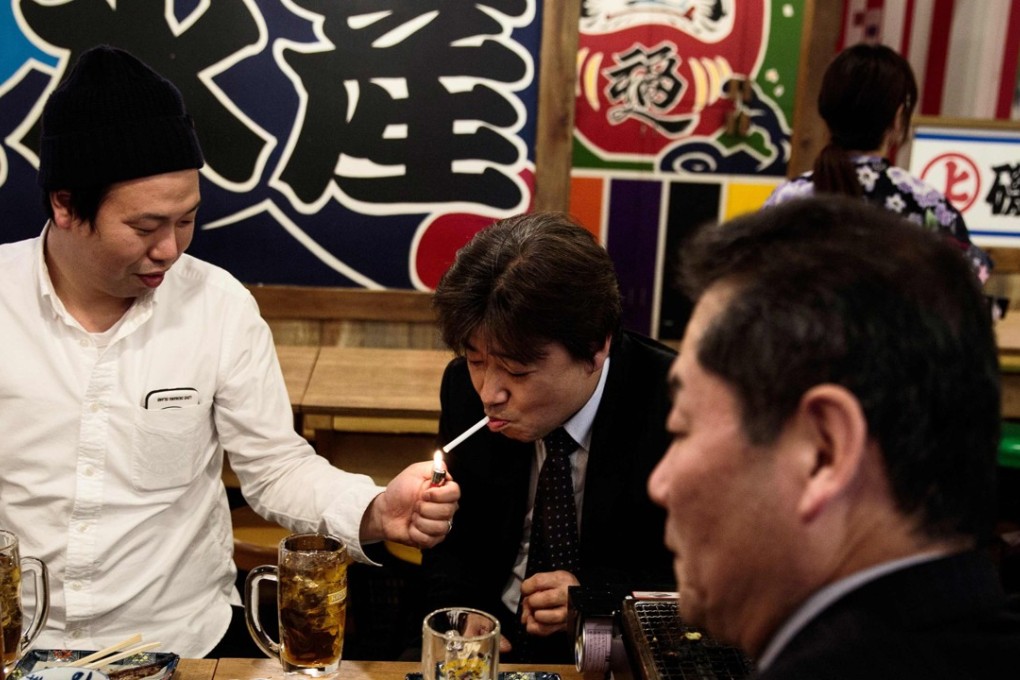Japan fails to ignite ‘zero tolerance’ passive smoking ban under anti-cancer law
Ruling party lawmakers with links to tobacco and hospitality industries opposed the move

The Japanese government failed to toughen a passive smoking ban in its new anti-cancer programme, which was approved by the cabinet on Tuesday, without support from the ruling party representing industries to be affected by the measure.
A health ministry expert panel suggested the programme in June, which sets out the country’s anti-cancer policy for the next six years, starting from the beginning of the 2017 financial year. It included a “zero tolerance” approach for second-hand smoking both at home and restaurants, but the move met strong opposition from the Liberal Democratic Party.
Japan’s existing anti-cancer programme calls for the eradication of passive smoking at government buildings and medical facilities by 2020, when Tokyo will host the Olympics, and to lower the ratio of those exposed to smoke produced by others at home and restaurants to 3 per cent and 15 per cent, respectively.

With some members holding strong ties with tobacco and restaurant industries, the LDP has insisted small eateries and bars should be exempt from the ban. The government initially hoped to gain cabinet approval for the new anti-cancer programme this summer, but a lack of consent by the ruling party pushed the schedule back.
Separately, the Health, Labor and Welfare Ministry has been in a stand-off with the LDP over a bill to strengthen Japan’s legislation combating passive smoking.